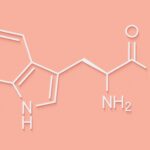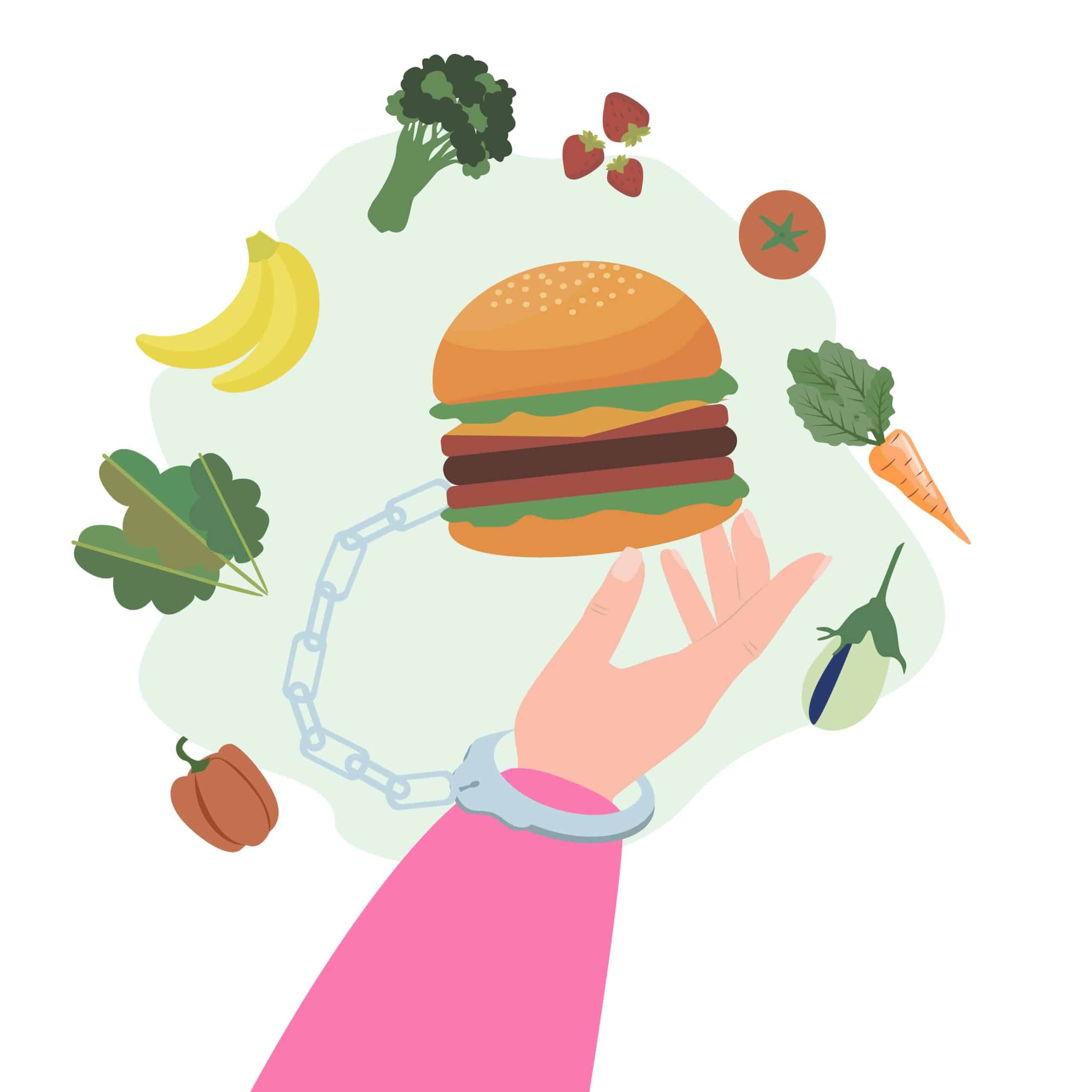Blog

How Omega-3 Fats Support Mental Health and Anorexia Recovery
So often we separate body and mind and yet they coalesce in being both causal and consequential when it comes to the development and maintenance of disordered eating patterns.
Anorexia Nervosa is a psychiatric disorder characterised by pathological, and physically manifested, restrictive eating, body image disturbances and a preoccupation with maintaining a low body weight.
Approximately one-third of patients develop treatment resistant, chronic anorexia, highly associated with sever psychiatric co-morbidity (i.e. depression, anxiety disorders, obsessive-compulsive disorders, etc) and premature death (Shih, P et al. 2017, p.2-8)
This self-restraint on dietary intake to maintain and lose weight is often characterised by a strong preference for low-fat foods and avoidance of calorically dense foods/ those with “added fat”.
Studies suggest that this reduced amount of total lipids correlates to an increased risk of relapse, a longer duration of the disorder, and biochemical and neurological changes that accelerate the development of the disorder (Nguyen, N et al. 2019, p.2).
Consequently, tests indicate that increasing intake of omega-3 fatty acids have been useful in the treatment of the cognitive and psychological symptoms of eating disorders – specifically anorexia.
Given the importance of omega-3 fatty acids in brain cell communication, they exert significant (positive) effects on brain function and mood (Cocker-Ross, C. 2017, p.154)
Essential Facts on Essential Fats
Essential fatty acids (EFAs) are those that the body cannot synthesise and must therefore be provided by the diet to avoid deficiency. The EFAs are linoleic (n-6/ omega 6/ LA) and alpha-linoleic (n-3/ omega 3/ ALA/ DHA/EPA). Common dietary sources of omega 6 fatty acids include refined vegetable oils (e.g. sunflower and cornflower), nuts and seeds. Whereas long chain omega 3 fatty acids are primarily found in foods such as oily fish, linseed, chia seeds, and hemp seeds (British Nutrition Foundation 2018, p.1) – foods that are often avoided or limited when dieting.
Yet, omega-3 fatty acids are vital components of cell membranes, neurotransmitters and other necessary cellular substrates and structures (Ibid).
Current guidelines suggest that 20-30% of an individual’s total energy take should be composed of fats and oils, with approximately 1% derived from omega 6 polyunsaturated fatty acids and 0.2% omega 3 polyunsaturated (Ibid, p. 2) to avoid deficiency.
The Department of Health’s 1991 dietary reference value affirms that ‘[t]here is a requirement for essential fatty acids, but this is extremely low and will almost certainly be met if energy intake is adequate’, therefore when energy and/ or dietary-fat intake is restricted, an EFA deficiency is highly probable to occur. Initially, the body releases EFA from adipose tissue (body fat) stores, yet as body-fat drastically reduces, as found within anorexic patients, this process eventually stops (National Institute of Health, 2020).
This insufficiency can contribute to exacerbating mental health issues – such as depression, obsessive-compulsive disorder and anxiety – all of which are often comorbidities of eating disorders.
The Science of Starvation & Therapeutic Use of Omega 3s
Studies demonstrate that omega-3 fatty acids play a role in controlling the concentration of neurotransmitters (chemical messengers), like that of serotonin, dopamine, acetylcholine, and gamma aminobutyric acid (GABA).
All of these neurotransmitters play a pivotal role in mood and appetite regulation and have been linked to anorexia and food intake/ aversion mechanisms.
For example, dopamine (a feel good/ pleasure hormone) moderates both the brain’s reward system and the mechanism of appetite/ food intake regulation. Evidence suggests that extreme food restriction and weight-loss, as in the case of anorexia, enhances the release of dopamine in the limbic system – the part of the brain that primarily processes emotions and memory. Consequently, it has been theorised that the over-production of dopamine results in increased anxiety and the ability to abstain from food despite severe dietary depletion (Yehuda, S and Rabinovitz, S. 2016, p. 2027).
Consequently, physical dietary – restriction propagates further restriction and food avoidance at a neurological level. Both brain function and the body change in response to restriction. The illness’ vicious cycle continues as starvation is rewarded.
Anxiety disorders and depression are relatively common mental health issues in the general population yet exacerbated and intensified in those suffering from malnutrition/ anorexia.
Alarmingly, one in five patients with anorexia nervosa die by suicide (Higgins, A. 2018)
However, omega-3 fatty acids, in culmination with omega-6 fatty acids, have been shown to potentially restore the changes in anorexia induced alterations to dopamine synthesis and uptake (Yehuda, S and Rabinovitz, S. 2016, p. 2027), in addition to improving symptoms of depressive/ mood and anxiety related disorders. Albeit limited research in this area, these are promising results that tell us more research in this area is warranted.
For instance, a large study conducted on depressive disorders illustrated that 59% of patients supplementing with EPA (omega-3) in contrast to those using a placebo demonstrated a reduction in depressive symptoms (Shih, P et al. 2017, p.11).
An important note to mention is that omega-3 supplementation has been deemed safe and has very few side effects associated with it. This makes it a potentially great adjunct therapy to weight restoration and prioritising adequate nutritional intake.
Diet Culture and Demonising Foods
Ultimately these studies and therapeutic interventions demonstrate the necessity of adequate nutrition and the inclusion of all foods. Extreme dietary restriction, food-avoidance, and the elimination and demonization of entire food groups (e.g. fats).
Diet culture breeds disordered eating and these culturally conditioned disordered dietary patterns may not only be internalised but come to alter our internal systems and psychology.
The Alphas and Omegas: Take Home Messages –
- The body cannot produce its own essential fatty acids, so it is necessary to consume an adequate amount.
- Limiting or restricting dietary fat-intake can result exacerbate or accelerate disordered eating patterns and associated mental health issues.
- Extreme dietary-restriction and EFA deficiency triggers neurological changes that can be reversed and through adequate nutritional intervention in addition to conventional medical treatment.
- More research is required investigating the clinical outcomes of omega-3 fats in treatment for anorexia, however, with few purported side effects and various benefits found in supporting comorbid mental health issues, they may be a promising avenue for adjunct therapy.
If you would like to heal both your body and mind, please contact us at [email protected] as we would be delighted to help you on your journey to recovery.
Charlotte Munro, BSc
EHL Team x
References
Goncaves, C et al. (2005), ‘Omega-3 Fatty Acids and Anorexia’, Current Opinion in Clinical Nutrition and Metabolic Care, 8(4), pp. 403-407. doi: 10.1097/01.mco.0000172580.02138.20
Higgins, A (2018), ‘The Neurobiology of Anorexia Nervosa’, Anorexia and Bulimia Nervosa. doi: 10.5772/intechopen.82751
Jacka, F et al. (2017), ‘A randomised controlled trial of dietary improvement for adults with major depression (the ‘SMILES’ trial)’, BMC Medicine, 15(23), pp. 1-13. doi: 23.10.1186/s12916-017-0791-y
Nguyen, N et al. (2019), ‘Food-Intake Normalization of Dysregulated Fatty Acids in Women with Anorexia Nervosa’, Nutrients, 11(2208), pp.1-19. doi:10.3390/nu11092208
Satogami, K et al. (2019), ‘Relationship between polyunsaturated fatty acid and eating disorders: Systematic review and meta-analysis’, Prostaglandins, Leukotrienes and Essential Fatty Acids, 142, pp.11-19. doi: 10.1016/j.plefa.2019.01.001
Schalla, M and Stengel, A (2018), ‘The Role of Ghrelin in Anorexia Nervosa’, International Journal of Molecular Science, 19(7), pp. 1-16. doi: 10.3390/ijms19072117
Shih, P et al. (2019), ‘Personalized polyunsaturated fatty acids as a potential adjunctive treatment for anorexia nervosa’, Prostaglandins Other Lipid Media, 113, pp. 11-19. doi: 10.1016/j.prostaglandins
Yehuda, S and Rabinovitz, S (2016), ‘The Role of Essential Fatty Acids in Anorexia Nervosa and Obesity’, Critical Reviews in Food Science and Nutrition, pp.2021 – 2035. doi: 10.1080/10408398.2013.809690














